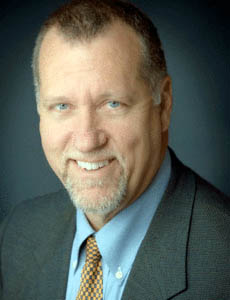Your Estate … with James Ward: Real life examples expose the need to carefully select your estate trustee
Will your named trustee make the final distributions as per your wishes?
![]()
By James Ward

James Ward
People frequently think of a living trust as simply a mechanism to transfer their assets to their named beneficiaries — whether that be adult children, grandchildren, siblings, or charities. But it’s much more than that. It isn’t just about what happens to your assets after your death, but also how we use those assets while you’re living.
Imagine that you have an accident or stroke or eventually decline into dementia or Alzheimer’s diseases. Who is in charge then, and who will help you?
These questions are critical and require some thought. A good living trust will set out all of the rules in great detail, but the person managing the trust and following those rules is someone you have to select. Will that person be willing to spend your own money on your care, or do they want to scrimp on your care because they’re also going to inherit from you and a dollar spent on your care today means fifty cents or a dollar less for them as inheritance when you die?
Will your named trustee make the final distributions as per your wishes?
Here are a few real-life examples:
Case #1 — The adult daughter moved her mother to be closer to the daughter, but the mother doesn’t drive and now she has lost all of her friends of several decades and has little to no social interaction with anyone. The daughter works and has her own family, so mom just sits home alone all day — every day. The mother wants to move back to her home area, but the daughter refuses to allow her mother to use the mother’s own funds to move back. It’s a case of greed and control, and the mother is at the point of possibly contacting Adult Protective Services to regain control over her own funds after she had passed control of her money to her daughter.
 Case #2 — Father named the daughter as trustee to divide the assets to herself and his son, and he also advised the son to contact me as soon as the father died. The son didn’t call me because he felt that his sister would follow the trust, but the sister filed with the court a handwritten note supposedly signed by the father on his deathbed. The note shouldn’t have changed anything, but she requested that the court respect it, and then the son missed the court deadline date to object. The result was that he lost out on about $1 million that could have absolutely changed his life.
Case #2 — Father named the daughter as trustee to divide the assets to herself and his son, and he also advised the son to contact me as soon as the father died. The son didn’t call me because he felt that his sister would follow the trust, but the sister filed with the court a handwritten note supposedly signed by the father on his deathbed. The note shouldn’t have changed anything, but she requested that the court respect it, and then the son missed the court deadline date to object. The result was that he lost out on about $1 million that could have absolutely changed his life.
 Case #3 — My clients had dug themselves into a financial hole. They were in their 80s, they had limited income, and they weren’t going to go back to work. The situation was pretty dire when they called me for help. Their best option was a reverse mortgage to tap some of their equity that was more than $1 million so that they could stay in their home without having to make mortgage payments. The problem was that their son kept pressuring them to not do a reverse mortgage because that would eat into the equity of the home he was expecting to inherit. They had already been served a notice of foreclosure proceedings. Without the reverse mortgage, they were about to lose their home of more than 50 years and the husband felt that losing the home would result in a devastating blow to his wife who was already suffering some dementia.
Case #3 — My clients had dug themselves into a financial hole. They were in their 80s, they had limited income, and they weren’t going to go back to work. The situation was pretty dire when they called me for help. Their best option was a reverse mortgage to tap some of their equity that was more than $1 million so that they could stay in their home without having to make mortgage payments. The problem was that their son kept pressuring them to not do a reverse mortgage because that would eat into the equity of the home he was expecting to inherit. They had already been served a notice of foreclosure proceedings. Without the reverse mortgage, they were about to lose their home of more than 50 years and the husband felt that losing the home would result in a devastating blow to his wife who was already suffering some dementia.
Who will make the right decisions to care for you as you age? Who will correctly follow your wishes for the distribution of your assets after your gone?
Think carefully before making this decision.
